
From game designer to game publisher
Juma Al-JouJou creates games for a better world
By Peter Budig
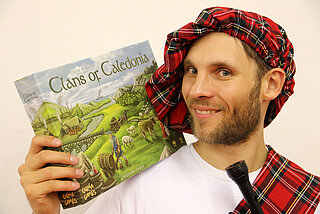
At Spielwarenmesse 2023, a young man named Juma Al-JouJou was out and about as a scout on the trail of talented game designers. Just a few years ago, he himself was presenting his game invention at the German Game Designer Convention in Göttingen, Germany. "Nobody wanted to publish my game, so I started my own publishing company," he recalls. So this story is about how you can create a global bestseller with a clever concept, a huge amount of diligence, a high pain threshold for frustration and with the aid of modern fundraising options. The publishing house where this happened is called Karma Games.
These days, fostering young talent is a major topic everywhere you look – whether you’re talking about professional football or the board game industry. As of this year, the International Game Inventors' Convention has been held as a separate event during the Spielwarenmesse. The event was launched years ago by games journalist Tom Werneck in Haar near Munich. "This important step is a win-win situation for everyone involved," said Tom Werneck, founder of the Bavarian Games Archive, grinning like a child in a toy shop. Game inventors from all over the world sat at wooden tables with their prototypes, dreaming of being discovered. In between, scouts from the game publishers went from table to table, expertly reading the instructions and asking questions.
Karma Games: games with ideas for a better world
Before becoming an entrepreneur, Juma Al-JouJou gained a degree in philosophy and economics at Regensburg University and then worked as an SAP consultant from 2008 to 2010. This permanent position furthered his belief that an activity as an independent entrepreneur would suit him better. This was followed by an international double master’s degree in Innovation Management & Entrepreneurship/Business Administration at the Technical University Berlin and the University of Twente in the Netherlands from 2010 to 2012. Looking back, he says that this course sharpened his view of international markets and helped him to perfect his English. He also used the time to do some deep thinking. He analysed classic games such as El Grande by Wolfgang Kramer and thought about how he would change the rules. His studies led to him applying for an EXIST-Gründerstipendium, a funding programme provided by the Federal Ministry for Economic Affairs and Climate Action (BMWK) and awarded through the European Social Fund (ESF). "The key requirement is that the planned business idea has to be an innovative, technology-oriented or knowledge-based product with significant USPs and good economic prospects for success." He got the grant right at the first attempt, which is unusual, and carried out a project to establish "online learning games as a medium of communication for responsible companies". At the same time, he developed Green Deal, his first ambitious board game. "It was very entrepreneurial in its layout, very sustainable, very international," he recalls. During this period, he founded the publishing house Karma Games, too. Sales of the game were modest, but the gain in knowledge was enormous, not only for Al-JouJou the game designer but also for Al-JouJou the game publisher. For the first time ever, he used a German crowdfunding platform called Startnext. Fette Beute (Rich Pickings), a card game, was the name of the next game published.
Through the ceiling with Clans of Caledonia
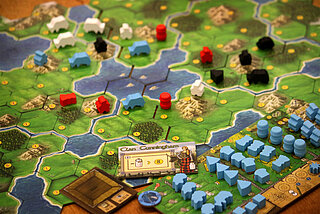
When working on the deliberately complex board game Clans of Caledonia, which is somewhere between a connoisseur’s game and an expert’s game, he drew on the experience he gained from the first few years after the company was founded. "I deliberately want to make sustainable and attractive games; this business is about more than just economic success," is what he believes. In 2016, he presented his new game at the Göttingen Game Designer Convention. "No publisher was really interested in it," he recounts, almost shrugging. He convinced the renowned graphic designer Klemens Franz to take on the haptics and illustration. And then, all at once, things took off: he launched an international Kickstarter campaign for the game with a target amount of €29,000, which, during its run until 18 May 2017, attracted nearly 6,500 backers and almost €400,000. "This form of fundraising doesn’t work as a corporate loan," Al-JouJou explains. "Backers subscribe to a pre-order, relying, in the process, on the personal pledge of the publisher. Which means, therefore, that the capital is taxed as revenue." Thanks to this backing, the game was officially launched at the 2017 International Game Days in Essen, Germany, and sold out within a short space of time. Incidentally, that's what happening again right now. The publishing house, which has now added two permanent employees and one freelancer to its staff, is working on expanding. Then there will also be a new edition. Clans of Caledonia has won several awards; in 2018 it was voted fourth in the German Game Prize and also received the MinD Game Prize from the German Mensa Association for gifted people. In 2019, Al-JouJou also published the educational game HERTZSCHLAG about renewable energy.
It all began in an orphanage
Who is this ever-young, resilient and diligent man with a razor-sharp mind? As though it were merely a matter of course, he graduated from high school with good grades and completed his studies in Regensburg as well as Berlin and Twente without delay, including a double master’s degree with a stay abroad. Juma Al-JouJou was born in Sharjah, United Arab Emirates, on 30 September 1985. His father soon left the family, and his mother returned with him to Bavaria. But she was an alcoholic and unable to look after herself and her child. At the age of seven, Juma was sent to an orphanage in Sulzbach-Rosenberg and stayed there until he graduated from high school. "I always felt I was different," he says, reflecting on his past. He studied Nietzsche and Buddhist teachings early on. "The Dalai Lama’s teachings helped me cope with my past." One crucial event was a visit to the orphanage by an Iranian refugee family who spoke no German. "The young son played chess very well and I experienced how a game helped people to communicate without a common language." Juma joined the local chess club, with great success. Chess, with its absence of luck and its predictability, gave him a sense of stability that was sorely lacking at home.
He took this analytical grasp of circumstances and possibilities with him into his university and professional life. "Of course," says Al-JouJou, summing up the situation, "you can’t predict everything. Sometimes you just need some luck." But this, too, can be explained in scientific terms: "Chance favours the prepared mind" is what French chemist and bacteriologist Louis Pasteur postulated as early as 1822.
Ludography of Juma Al-JouJou – a selection
2013: Pretty Ugly: The Satirical Card Game against Beauty Mania (unpublished)
2014: Green Deal (Karma Games)
2015: Fette Ernte (Karma Games)
2017: Clans of Caledonia (Karma Games)
2019: Hertzschlag (Karma Games)
More information:
About the author
Peter Budig studied Protestant theology, history and political science. He worked as a freelance journalist, headed up the editorial department of a large advertising paper in Nuremberg for ten years and was the editor of Nuremberg’s Abendzeitung newspaper. He has been freelancing again since 2014 as a journalist, book author and copywriter. Storytelling is absolutely his favourite form.



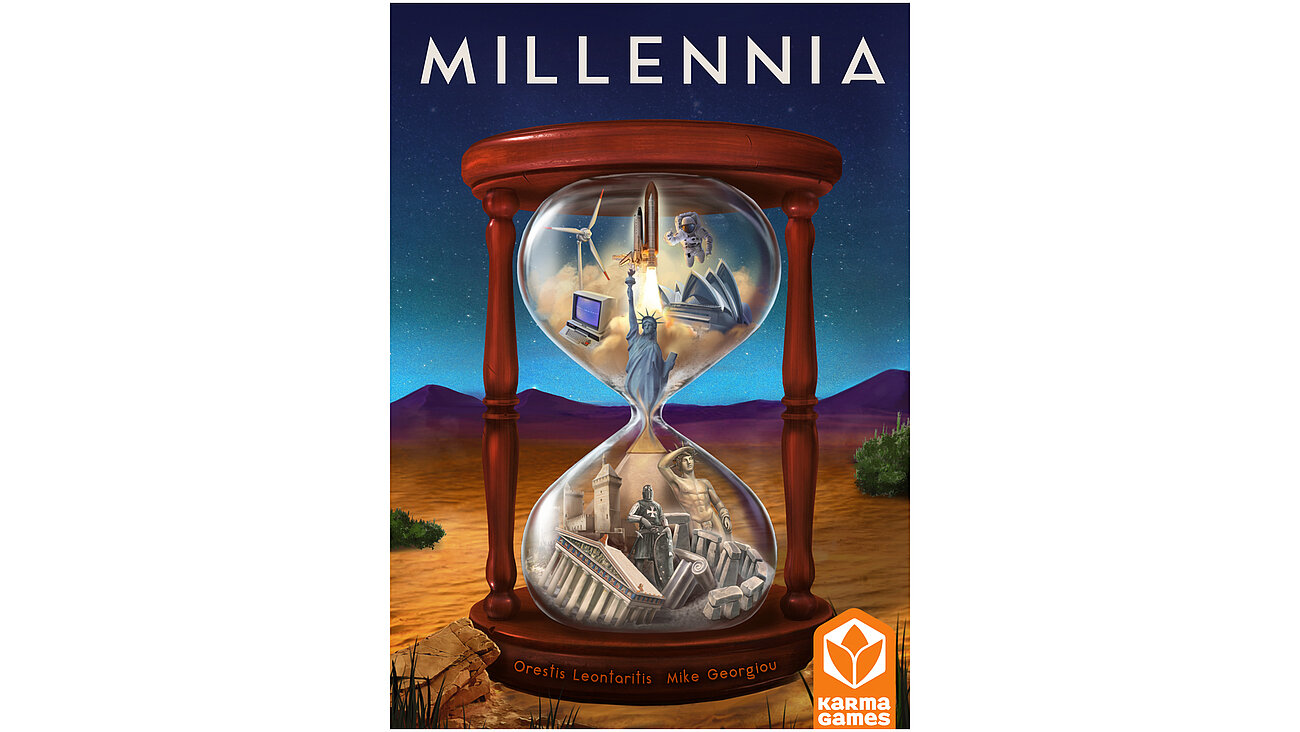
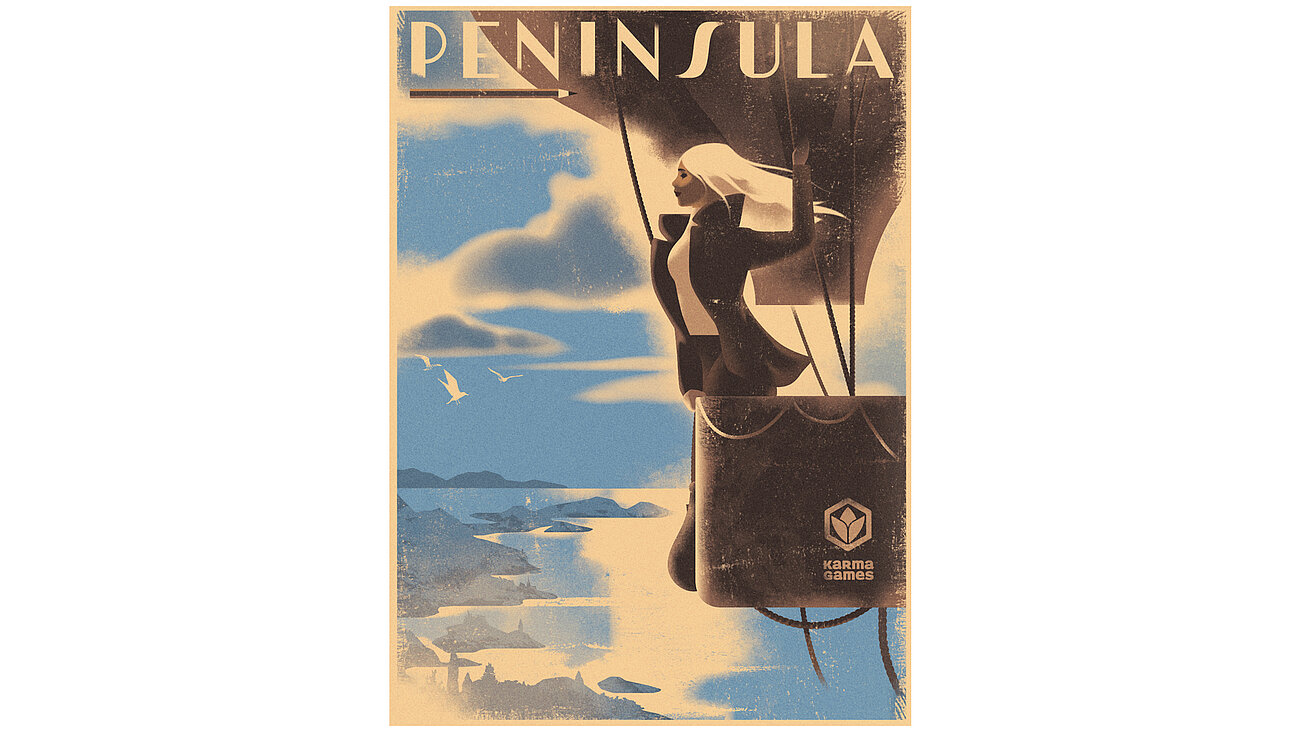
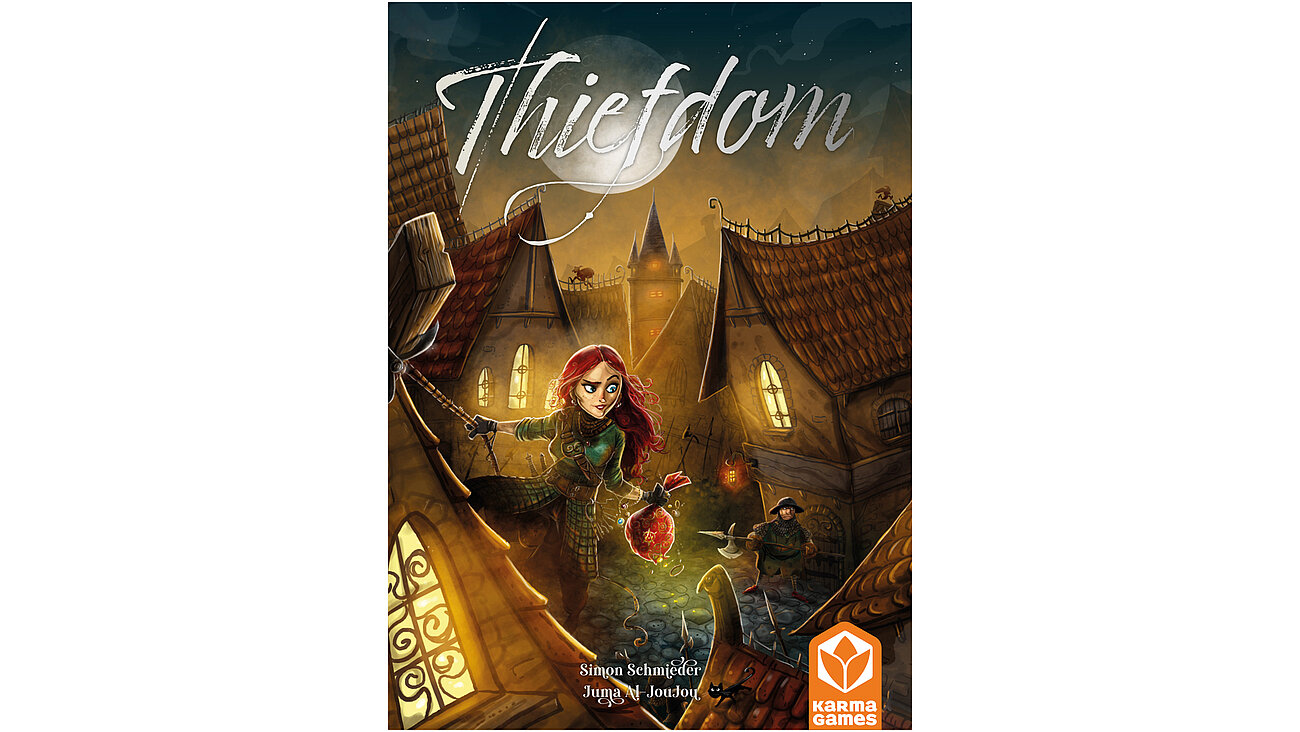
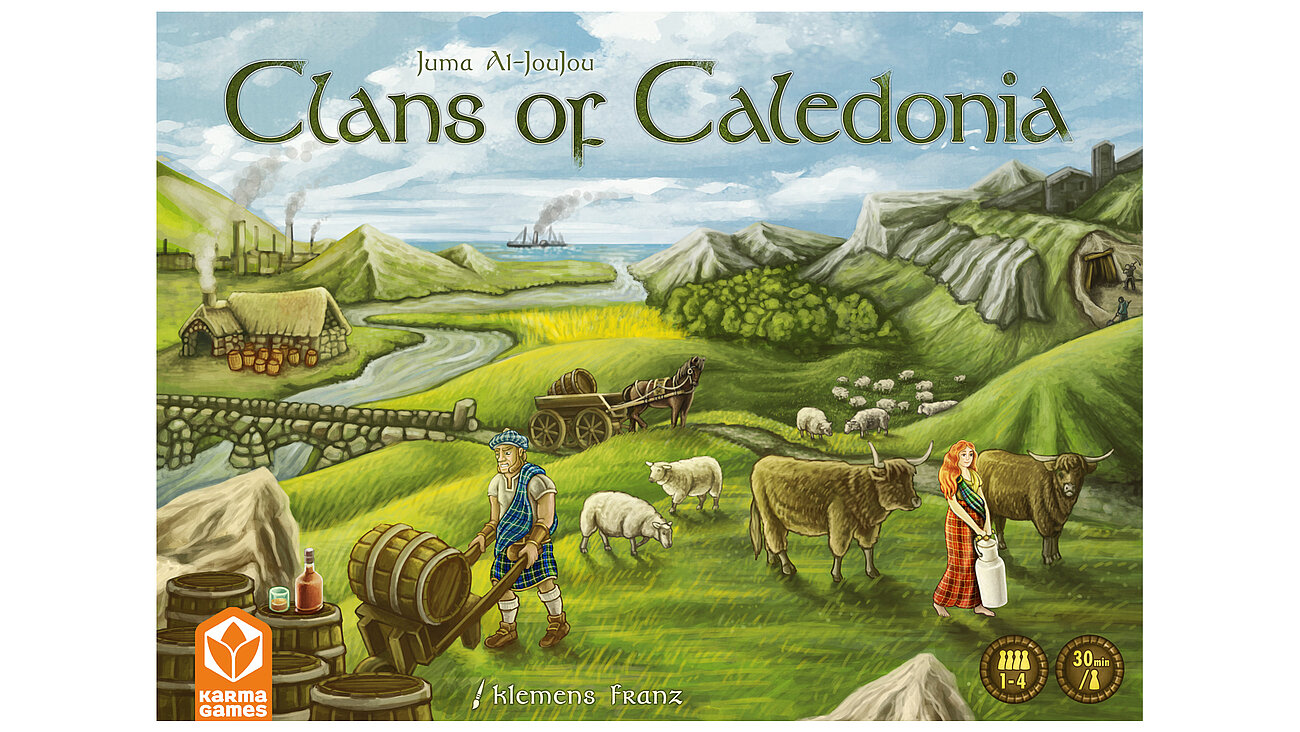

![[Translate to Englisch:] [Translate to Englisch:]](/fileadmin/_processed_/8/0/csm_20230323_Teaser_c5e9b0a244.jpg)